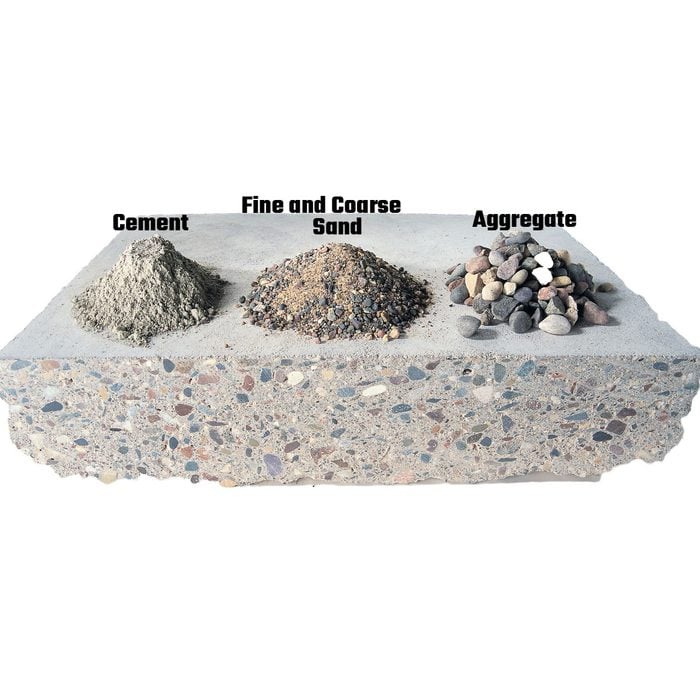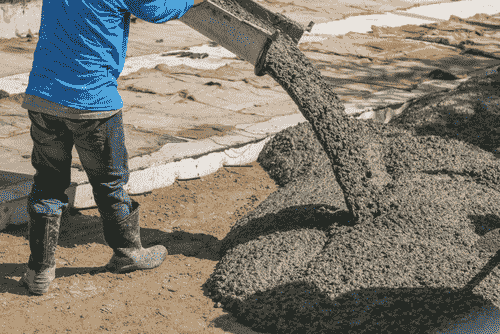Why Pick Our Concrete Providers: Quality in Every Pour
Why Pick Our Concrete Providers: Quality in Every Pour
Blog Article
Revealing the Eco-Friendly Advantages of Using Recycled Concrete in Sustainable Building Practices
In the realm of sustainable building and construction methods, the utilization of recycled concrete stands as an essential yet typically underestimated resource. Past its conventional applications, recycled concrete offers a myriad of environment-friendly benefits that prolong much past the confines of typical building and construction materials.
Ecological Benefits
By incorporating recycled concrete right into building methods, there is a substantial reduction in the requirement for new raw products, leading to conservation of all-natural resources. Furthermore, the use of recycled concrete reduces the amount of waste being sent out to land fills, consequently reducing ecological pollution and easing the strain on land fill abilities (Concrete).

Additionally, the production of traditional concrete is a significant source of carbon discharges as a result of the energy-intensive procedure of cement manufacturing. On the other hand, recycled concrete has a reduced carbon footprint as it decreases the demand for brand-new concrete production. This decrease in carbon exhausts adds to mitigating climate change and sustains lasting building and construction practices. Overall, the ecological advantages of utilizing recycled concrete are significant and play a crucial duty in promoting green construction methods.
Cost-Efficiency
Achieving cost-efficiency is a critical factor to consider when analyzing the usage of recycled concrete in building tasks. One of the key advantages of utilizing recycled concrete is its cost-effectiveness contrasted to standard concrete.
Moreover, the usage of recycled concrete can result in financial savings in landfill costs by drawing away concrete waste from disposal sites. This not just reduces the environmental influence yet also eliminates the costs related to waste elimination. The durability and performance of recycled concrete are equivalent to traditional concrete, making certain that cost financial savings do not compromise the high quality of the construction.
Durability and Stamina
Thinking about the considerable cost-efficiency advantages of making use of recycled concrete, it is crucial to analyze its resilience and strength in building and construction applications. Recycled concrete deals comparable, otherwise premium, toughness and strength properties to standard concrete. With developments in processing strategies and high quality control, recycled concrete can satisfy or exceed the efficiency requirements of traditional concrete. The procedure of reusing pop over here concrete includes crushing, arranging, and evaluating old concrete to generate accumulations that can be made use of in new building and construction projects. These recycled accumulations can supplying satisfactory compressive stamina, durability, and long-term efficiency.

Waste Decrease
When it comes to making use of recycled concrete, waste reduction is a key advantage that adds considerably to environmental preservation. By incorporating recycled concrete right into building and construction jobs, this waste is repurposed and drawn away from landfills, reducing the general ecological effect of construction activities.
Additionally, the usage of recycled concrete can lead to set you back savings for building and construction projects, as it is usually much more economical than sourcing and transporting new materials - Concrete. In conclusion, waste reduction via the utilization of recycled concrete is a crucial part of sustainable building techniques that benefits both the setting and the construction industry as a whole.
Power Conservation
Power conservation is a vital aspect of lasting construction techniques, aiming to minimize the total energy usage related to structure operations and materials manufacturing. Significant energy cost savings are attained compared to conventional concrete manufacturing when it comes to making use of recycled concrete in building. The process of creating recycled concrete includes reusing and crushing existing concrete materials, which takes in much less power than mining, handling, and carrying resources for brand-new concrete manufacturing. In addition, the usage of recycled concrete can help reduce the demand for virgin accumulation, additional reducing the energy-intensive extraction and handling of natural sources.
Verdict
To conclude, the usage of recycled concrete in sustainable construction practices offers numerous ecological advantages, cost-efficiency, resilience, toughness, waste reduction, and power preservation. By incorporating recycled concrete right into building projects, we can add to a much more environmentally pleasant and sustainable future. It their explanation is crucial for the construction market to focus on the use of recycled products to help in reducing the ecological impact of building activities.
One of the crucial advantages read the article of utilizing recycled concrete is its cost-effectiveness compared to standard concrete.Furthermore, the usage of recycled concrete can lead to cost savings in landfill prices by drawing away concrete waste from disposal sites. The durability and efficiency of recycled concrete are equivalent to traditional concrete, making certain that price financial savings do not compromise the top quality of the building.

Report this page